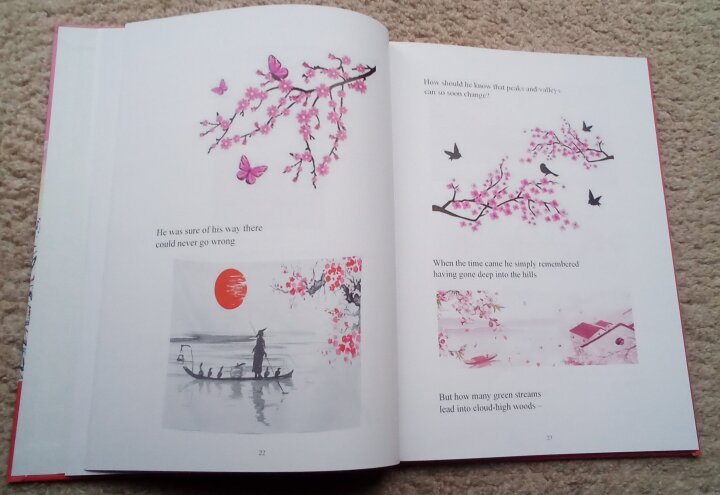Song of the Peach Tree Spring
One of my many Blooks is "Song of the Peach Tree Spring" by Wang Wei (8th century) A very enigmatic poem that can have multiple meanings.
A fisherman sails up a river, wandering, and sees a few huts amid the cherry blossoms on the river bank, very secluded. It turns out that this is a little village of people who have dropped out of time, secluded from the world. A small paradise. The fisherman is greeted well but finally must leave. He seeks to leave a trail as he retraces his steps but after returning home and telling of his find neither he nor any other is able to find the way back. Yet a touch of hope at the end, with the suggestion that perhaps any river will take us back, who knows which one.
My blook includes two translations as poetry, one prose version, some analysis and a few biographical details of Wang Wei.
One page from my Blook:-
A fisherman sails up a river, wandering, and sees a few huts amid the cherry blossoms on the river bank, very secluded. It turns out that this is a little village of people who have dropped out of time, secluded from the world. A small paradise. The fisherman is greeted well but finally must leave. He seeks to leave a trail as he retraces his steps but after returning home and telling of his find neither he nor any other is able to find the way back. Yet a touch of hope at the end, with the suggestion that perhaps any river will take us back, who knows which one.
My blook includes two translations as poetry, one prose version, some analysis and a few biographical details of Wang Wei.
One page from my Blook:-



